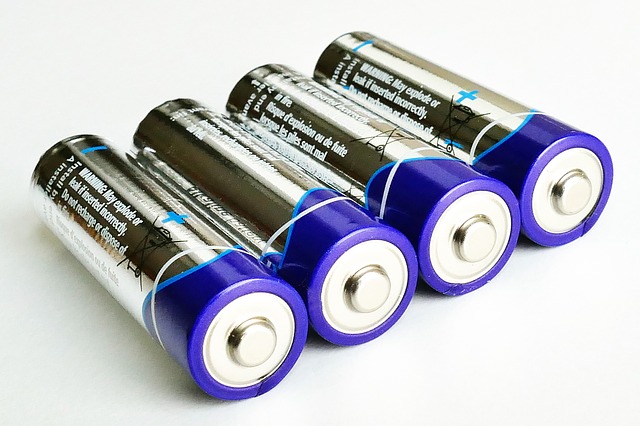Difference between Lithium and NiMH Rechargeable Batteries-Comparison
Jun 08, 2020 Pageview:2152
It’s no secret that modern society is ruled by numerous electronic devices like mobile phones, cameras, and laptops. All of these devices utilize batteries. Isn’t, it right? Indeed, there are so many types of batteries out there on the market and each type has its own strengths and limitations. For this post, we are going to walk you through the two most popular rechargeable battery technologies - Lithium and NiMH batteries.
So, if you’re interested in knowing key differences between lithium and NiMH batteries, then you’re certainly in the right place.
Can you use lithium batteries instead of NiMH batteries?
To know the answer to your question, let’s first understand what these batteries are.
Well, a lithium-ion battery, also popular as Li-ion battery is the type of rechargeable battery. These batteries utilize an intercalated lithium compound at the positive electrode as the material and negative electrode is graphite. These batteries have no memory effect, high energy density, and low self-discharge. That’s why lithium rechargeable batteries are commonly used in portable devices or consumer applications.
On the other hand, NiMH, also known as nickel-metal hydride battery is also a type of rechargeable battery. And the chemical reaction at the battery’s positive electrode is equivalent to that of NiCd, with utilizing nickel oxide hydroxide. But, the negative electrodes utilize a hydrogen-absorbing alloy rather than cadmium. The energy density of these batteries can reach that of a lithium rechargeable battery.
As you can now see that although both batteries are rechargeable, they are made of different technologies. Well, most of the applications out there are using either lithium-ion batteries or NiMH batteries. Well, the answer to your question, “can use lithium batteries instead of NiMH batteries” is YES. But, it’s not recommended. To be honest, you should the battery that helps to boost your application performance.
What are the differences between lithium and NiMH rechargeable batteries?
To help you comprehend differences between Li-ion and NiMH batteries, below we have come up with key pros and cons of both the batteries.
Lithium Rechargeable Batteries: Pros
Reliable - These batteries possess a considerably lower self-discharge rate in comparison to NiMH batteries. Therefore, they can be utilized for low-current devices such as watches and clocks.
Small - These batteries are smaller as well as lighter in comparison to NiMH batteries.
Higher Voltage Output - A single cell can drive 3.7v. On the other hand, even 2 NiMH cells can only deliver 2.4v.
Temperature Tolerance - These batteries can cope up with low temperatures as well as warmer environments in comparison to NiMH batteries.
Faster Recharge - You can charge Li-ion batteries in about 1 to 3 hours. That’s quite faster in comparison to NiMH batteries that take around 10 to 12 hours.
High Energy Density - These batteries carry more charge per gram in comparison to NiMH battery.
Lithium Rechargeable Batteries: Cons
Lower capacity - These batteries possess an average of 1500 mAH in comparison to the 2200 mAH of NiMH cells.
Incompatibility - Well, different manufacturers come up with different shapes and sizes of Li-ion batteries, which make then usable only to a particular set of applications. On the other hand, NiMH batteries have standard sizes.
More Active materials - Ions are extremely active material. They can easily reach and produce lots of heat. That’s the reason they are easily short circuit.
Can’t be discharged completely - Discharging them completely could damage them.
NiMH Rechargeable Batteries: Pros
High Energy density - These batteries have a high energy density as compared to lithium-ion batteries.
Compatibility - As these batteries come in standard size in comparison to Li-ion batteries that come in several sizes and shapes, making them more usable in different applications.
More Safer - These batteries contain less active materials in comparison to Li-ion batteries.
Can be discharged completely - You can bring down to a zero charge.
NiMH Rechargeable Batteries: Cons
High self-discharge rate - These batteries lose a significant percentage of their charge each month.
Not ideal for Low load devices - It’s not recommended to use these batteries for low load devices such as watches and clocks.
Long charging time - The charge time of these batteries is about 10 to 12 hours.
Not ideal for extreme temperatures - These batteries at extreme temperatures will start dropping their voltage output.
In terms of cost, NiMH batteries are less expensive in comparison to Li-ion batteries. These are all key differences between these two rechargeable batteries you should know before making any purchase. As you can see that there are some areas where Li-ion batteries are better than NiMH batteries and vice-versa.
Which is better, lithium battery or NiMH battery?
Wondering which one is better, whether lithium or NiMH rechargeable batteries? Well, the answer entirely depends on what power application you’re using it for.
There’s no doubt that Li-ion batteries have some remarkable advantages over NiMH batteries, they may not come in or available in the particular size you desire. Indeed, lithium-ion batteries are more expensive.
On the other hand, NiMH batteries need more replacement and maintenance in comparison to Li-ion batteries but are very cheaper to purchase. If there is one of the biggest advantages of NiMH batteries over lithium rechargeable batteries, then it’s a relatively cheap price.
Not to mention, NiMH battery packs are best suited for applications where there is a need for high-energy consumption. They are even best for applications like a backup power source. Lithium rechargeable batteries, on the other hand, are best suited for consumer and portable applications such as smartphones, laptops, and watches.
So, which one is better? The answer depends on your particular requirements. Make sure to use the battery that enhances the performance of your application.
Leave Message
Hottest Categories
-
Hottest Industry News
-
Latest Industry News











